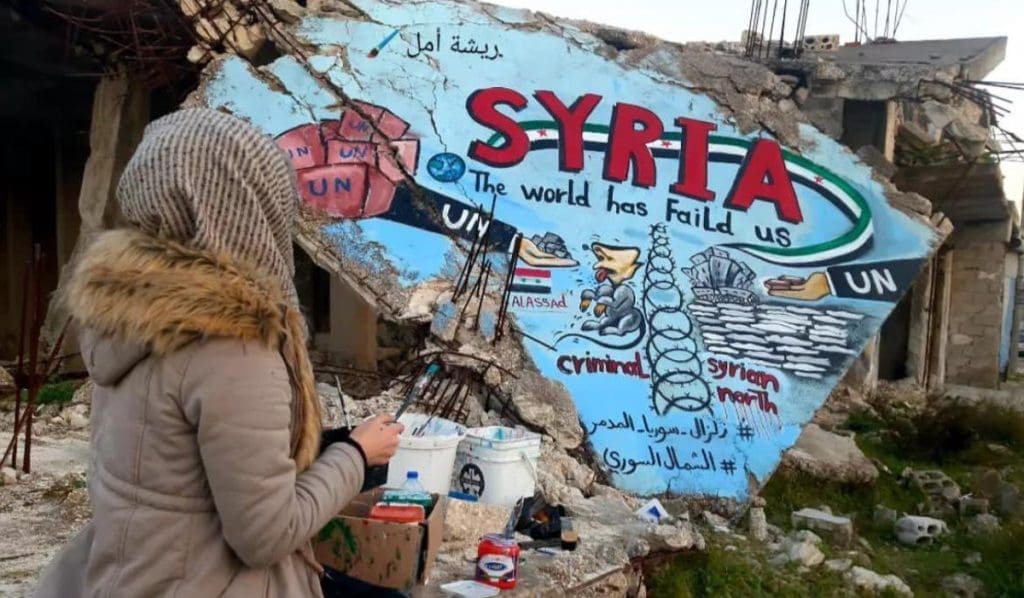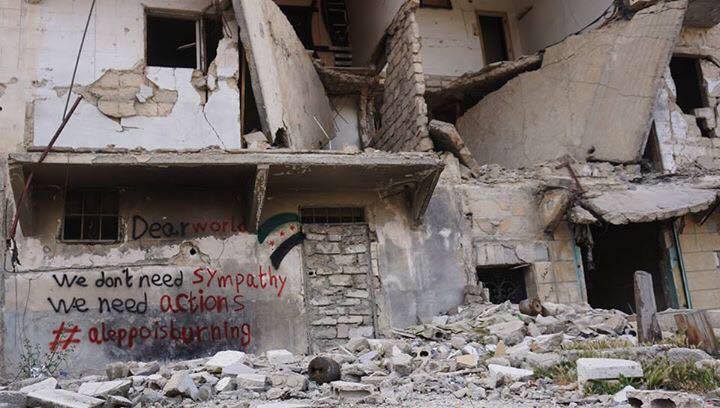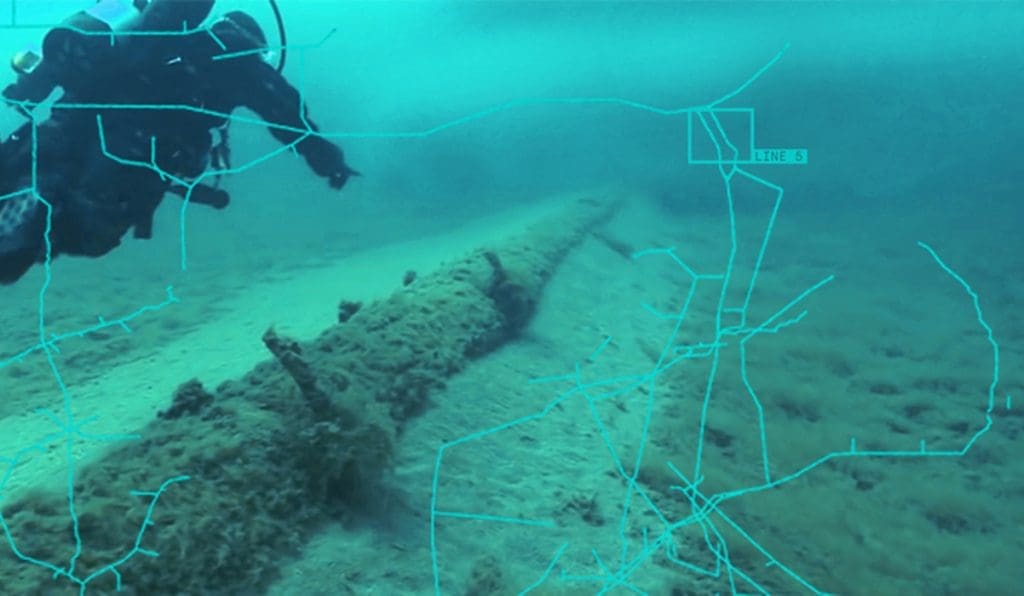Transcribed from the 18 February 2023 episode of Arab Digest (“The earthquakes: ‘a gift to Assad’”) and printed with permission. Edited for space and readability. Listen to the whole interview:
There is a whole cocktail of humanitarian catastrophes all present in northwest Syria.
William Law: Hello and welcome to this week’s Arab Digest podcast. I’m William Law, editor of the digest. My guest today is Dr. Lina Khatib. Lina has just been appointed director of the SOAS Middle East Institute. She moves to SOAS from Chatham House, where she’s been the director of the Middle East and North Africa program. Lina is an international expert on policy, security, and culture in the Middle East, and I’m delighted to have her back on the podcast.
Lina, congratulations on your new position.
Lina Khatib: Thank you very much.
WL: We talked about Syria a few weeks ago; we should have that conversation on the podcast. But then of course there have been terrible earthquakes in Turkey and Syria—and as awful as it is in Turkey, it’s that much worse in Syria, with huge difficulties getting humanitarian aid to victims.
What can you say about the current situation and why it’s proving so challenging?
LK: The current situation in northwest Syria has very much to do with the broader context: around four million people have fled to that area from other areas in Syria. It’s densely populated. They live, or lived, in shoddy structures—which of course became more vulnerable when the earthquakes struck. People in northwest Syria have very limited access to aid because there was only one open border crossing allowed between Turkey and Syria until not too long ago.
And there is continuing bombing by the Syrian regime and Russia in that area, which some reports say did not stop in the immediate aftermath of the earthquakes. There is a whole cocktail of humanitarian catastrophes all present in northwest Syria. In addition to other politicization, this has meant that northwest Syria has just not been receiving as much humanitarian assistance in the aftermath of the earthquakes as other areas affected.
WL: And yet the situation is that much worse—do you think there’s a lack of awareness, internationally, of just how awful the situation is in Syria?
LK: Syria fell off the news radar for a while, especially since the Russian attack on Ukraine began almost a year ago—but even before that. Unfortunately, public and media attention tends to be directed at the hottest of conflicts and the hottest of bad news. Because the Syrian conflict had been going on for so long, it fell off the public attention radar, but the misery in northwest Syria and other areas in Syria, and of Syrians in general who have been affected by conflict, has not stopped. Maybe the intensity of the bombing lessened a little bit, and maybe the intensity of the conflict in general lessened a little bit. But the suffering certainly did not lessen.
The earthquakes have now reminded us of what, sadly, the international community had been ignoring for all this time.
WL: You mentioned that there is some question that the bombing may have continued after the earthquake?
LK: Yeah, there was at least one report I saw about one area that continued to be bombed on Monday, the same day that the earthquakes happened, and the bombing took place after the earthquakes happened. I have not been able to independently verify that report, but judging by the behavior of Russia and the Syrian regime, I wouldn’t be surprised if that had happened.
WL: Do you think that Bashar al-Assad will weaponize aid in order to fulfill his ambition to crush the last rebel enclave of Idlib?
LK: The earthquakes came as a gift for Assad. This is an area that Assad and his air force, along with the Russians, have been bombing persistently for a very long time. Since Russia joined this conflict militarily in 2015, northwest Syria has been the main area they have been targeting. So the earthquakes, in a way, came to help with the destruction that the Assad regime and Russia have been perpetrating.
On a tactical military level, the Assad regime is finding the earthquakes quite useful. On a political level, the Syrian regime is trying to weaponize the aftermath of the earthquakes to try and get out of international isolation. For example, Assad and his senior officials are saying international sanctions imposed by the West—by the EU and the US—need to be lifted because they are hampering the delivery of humanitarian aid. This narrative is false: these sanctions have always carried an exemption for humanitarian assistance. The West is actually one of the biggest donors to humanitarian aid in Syria—in both regime and non-regime areas.
Also the regime is trying to say the aid coming from abroad should only flow through Damascus and official Syrian government channels, rather than being sent directly to the northwest. This is another way for the regime to try and achieve de facto normalization with the international community. It is trying to present itself as the legitimate power in charge of Syria.
The first reaction by the Syrian presidency to the earthquakes was not to declare a state of emergency in Syria or even to express condolences to the Syrian people, but rather mainly to focus on the messages that Bashar al-Assad himself had received from various world leaders expressing condolences to the Syrian people, highlighting that these leaders sent him these messages or spoke to him over the phone. Some of the leaders mentioned include Mahmoud Abbas from the Palestinian Authority, president Sisi of Egypt, the leader of the UAE, and the top of the list was of course president Putin of Russia.
Assad is trying to find political opportunities in this humanitarian catastrophe that the Syrian people are suffering from.
WL: It’s a despicable tactic, but one that is effective.
Can we step back to the situation before the earthquakes? Syria is about seventy percent under regime control, and the international consensus has clearly shifted to making our peace with this particular vicious dictator. It has been moving in that direction for some time, but are you at all surprised by this shift?
LK: The shift towards normalizing with the Assad regime is a result of the failure of the UN-led peace process that is meant to find a solution to the Syrian conflict that involves all warring parties represented. Normalizing with the Assad regime of course means ignoring a huge component of the peace process, which is the Syrian opposition. It completely ignores their role, it ignores their demands, it ignores their priorities, and ignores who they represent in terms of huge numbers of Syrians who do not recognize Bashar al-Assad as legitimate because of the oppressive behavior of his regime towards them. Normalization is happening at the expense of the Syrian people and their best interests.
The world was already heading in that direction because it wasn’t thinking about the best interests of Syrians. Normalization was being put forward by countries suiting their own individual national interests and security interests. Countries that want a regional role, like the UAE, see their position as trying to be friends with everyone around them in the region, to be secure from threats and risk. That’s why they wanted to try to normalize with Assad—not even necessarily being keen on Assad himself or his regime—and they certainly weren’t thinking about the well-being of Syrians. They were just thinking about their national priorities.
The behavior that went unchallenged in Syria further empowered Russia to think it can also get away with invading Ukraine.
The same applies to other countries in the region like Egypt and Algeria, who were showing willingness to bring Assad back into the Arab League. Internationally, some people felt that the peace process was going nowhere, “so we might as well just normalize and get on with it,” because they didn’t think that the Syrian conflict presented much of a concern for them in terms of their own national priorities. It was more passive normalization rather than active normalization. It’s not like anyone really thought about it in a comprehensive way. And it was all directed by the interests of the other countries, not by the interests of Syrians.
That was the situation before the earthquakes. Now, Assad is trying to see if the earthquakes can present opportunities to push this agenda even further, and that is why I mentioned the example of the memos and messages and phonecalls between Assad and these other world leaders. Because this definitely fits within his objectives: to say, “Look, the world has de facto recognized me as the legitimate leader of Syria.”
WL: How would you describe the Biden administration’s handling of the Syria file? Would “passive disinterest” just about cover it?
LK: The United States has unfortunately been a contributing factor to the catastrophe that we are witnessing in northwest Syria today, and in terms of the Syrian conflict more generally. Because the United States has been increasingly disengaged from the Syria issue. The fact that the US has not really developed a policy on Syria is very telling. They claim that they have a policy: to support the UN peace process. But the peace process has basically been dormant for years, and the US has not really tried, when it had the opportunity, to have a bilateral discussion with Russia on Syria. Of course this is now impossible because of Russia’s invasion of Ukraine.
So there were missed opportunities that the United States could have used and didn’t. And as a result of that, the conflict in Syria continued—and with protracted conflict comes conditions that have increased the suffering of the Syrians in the current earthquake. For example, the northwest of Syria remains unrecognized in any way as legitimate by the United Nations; simply because the UN only deals with its own member states, the UN was not delivering aid straight to northwest Syria. Had there been a solution to the Syrian conflict, aid would have been delivered by the UN to northwest Syria.
So you can see how the protracted conflict and the lack of political will on the part of the US and others to steer this conflict to a resolution has actually contributed in an indirect way to more deaths in Syria as a result of the earthquakes.
WL: Yeah, it’s interesting isn’t it, because in the Biden “state of the nation” address last week he made virtually no reference to foreign policy whatsoever, certainly nothing to say about Syria and the wider Middle East.
America, as you say, has a responsibility that it has basically walked away from, but what about the UK? Have we washed our hands of Syria?
LK: Unfortunately the UK has not had a distinct policy on Syria. The UK has generally been following the lead of the United States. And because the United States has not been interested in the Syrian conflict, the UK has more or less followed suit. We express concerns, we do send humanitarian aid, we do talk to the Syrian opposition, we are involved in donor conferences and things like that. But none of these things will actually solve the Syrian conflict. So we just pat ourselves on the back that we are doing these things, but these are not strategic moves, and we don’t seem to have leverage in the Syrian conflict in the first place.
Earlier on we might have had some leverage, but with time the Syrian conflict came to be captured by Russia: it became the international actor with the most clout when it comes to debates on Syria. Sadly the UK has a very diminished role as a result. I wish I could say the UK can now find an opportunity to play an assertive role in this context, but I think we lost that opportunity many years back, and now we just wait for a sign from Washington.
And when you look at what’s happening with Washington, there are divisions there—which of course is good news for Russia and the Syrian regime. For example, the department of the treasury in the United States announced a temporary lifting of sanctions for six months on transactions going to Syria, meant to help with earthquake relief. However, congress is not very happy with that and there has been a public challenge to this decision expressed by members of the house foreign affairs committee. This kind of division inside policy circles in Washington can only be good news for Russia and the Assad regime, because it weakens the United States’ position in the peace process.
WL: You make a very interesting point there, Lina, that essentially Washington and London ceded the situation to Russia without really any challenge whatsoever.
LK: Russia entered the Syrian conflict because it saw an opportunity. We have to remember that Russia was not there in the beginning. Yes, there was always a diplomatic and military relationship between the Ba’ath regime in Syria and the Soviet Union and then Russia. However, the Syrian conflict began in 2011, when it got violent—in the beginning, of course, it was a peaceful protest that the regime cracked down on, but then it transformed into a conflict because of the violent crackdowns by the regime. It became a war, it kept intensifying, and Russia only entered this war in an active military capacity in 2015.
There were basically four years—four years—in which the West could have done something and frankly did not. At that time, of course, the Obama administration was in charge, and its key objective was the nuclear deal with Iran. That was the main thing it wanted to achieve in the Middle East. Syria was not very high on the list of priorities. We all remember the “red lines” that president Obama said should not be crossed, and then did nothing when they were crossed with the use of chemical weapons. We all remember the words that “Assad must go,” said by Obama, that were not followed with any enforcement on the ground, in any way, by the United States.
Russia was observing very keenly, and saw in the Syrian conflict an opportunity to assert itself vis-a-vis the United States and internationally. And then of course we know what happened. Russia, in a way, got away with it, because there was no challenge coming from the United States. And of course Russia also used that as an opportunity to invade Ukraine. So the behavior that went unchallenged in Syria further empowered Russia to think it can also get away with invading Ukraine.
International politics does not operate in silos. Everything ultimately is connected.
WL: And of course there was Crimea as well—we let him do that. You can see why Putin felt so empowered. Very interesting point you make about the war in Ukraine. Having gone into Crimea, having gone into Syria, having established his presence in places like Libya with the Wagner mercenaries—he must have thought, “This is an open field, the West is not challenging me.”
LK: Absolutely. And you rightly point out Crimea. That happened in 2014, so even before Russia entered the Syrian conflict. And now the West is acting surprised at Russia’s behavior. And Russia, more recently in the context of the earthquakes, kept insisting that only one border crossing should be open between Turkey and Syria. It was Russia that blocked opening more than one in the Security Council whenever there was a meeting to discuss a cross-border resolution. So Russia is feeling quite empowered even now. Even in the context of all the pressure that it is feeling with the war in Ukraine, Russia is still showing its true colors. The West really should not be surprised anymore. The earthquakes have once again underlined who we’re dealing with here in terms of Bashar al-Assad in Syria, and sadly also in terms of the passivity of the rest of the international and Western actors.
Syrians are getting trodden on by the interests of all other actors.
WL: You mentioned this before, but Egypt and the UAE in particular are two Arab states actively engaged with Assad—it’s not surprising at all that authoritarian leaders would welcome him back into the fold. But the war isn’t over, so could cozying up to Assad come as a cost to them? Is that a possibility?
LK: Right now the cost is very minimal, because they also remain on very good terms with the West. They have very strong security and economic ties with the West. They are considered allies in the “war on terror” for example. They are relying on that. In general we have been seeing more and more pragmatism and transactional relationships, and compartmentalization of relationships between different countries in the world. You may be arguing with one country on one file but trading economically with them at the same time. So I don’t think the repercussions for them are going to be that great.
There is no international consensus on what should happen when it comes to the Syria file, and that’s why each country is basically pursuing its own national interests in a very narrow, rather myopic way.
WL: As you say, from their point of view it’s about security, and the situation in Syria doesn’t pose any security challenges to them at this stage. But there are so many international players at work in this war. You’ve touched on them: Russia, Iran, Turkey; the United States still has a military presence; the Iraqis and Jordanians share lengthy borders with Syria. The Kurds have claimed an autonomous region, Rojava.
Is there a path through that thicket of competing interests that would give the people of Syria some hope, Lina?
LK: Unfortunately Syrians are getting trodden on by the interests of all the actors that you mentioned. All those actors entered the Syrian conflict not because they are concerned about the well-being of Syrians, but because they saw in the Syrian conflict either a threat or an opportunity. When it comes to Turkey, for example, they have seen in the Syrian conflict an opportunity to crack down on the PKK and allies of the PKK. For Iran, it saw in the Syrian context an opportunity to further increase Iranian influence in the Levant. For the Iraqi militias that have been supporting Iran in this mission, it’s also because they are themselves funded by Iran and also are doing this in order to secure economic, military, and political goals. I could go on.
When you are Syrian, and all these international actors are looking at your country as an opportunity either to protect themselves from threat or to further their political objectives, then you as a Syrian have no agency. Unfortunately, this remains the case today.
WL: We did a podcast with Caroline Rose from the Newlines Institute last year about the extent to which the Assad family is running the captagon trade—sort of the narcos of the Middle East. Do you think Assad and his family will come out of this dreadful war as the winners? Is that the scenario we’re heading towards?
LK: I hope not. I talked about denying Syrians agency, but the situation need not continue like this. I hope that the catastrophe of the earthquakes makes people in diplomatic circles wake up to this reality—and the captagon trade is also a threat to the whole world. It’s an example of how the Syrian conflict is not an island conflict that just affects Syrians and the region around it. It actually has worldwide repercussions, and this is one of them.
Of course there was the rise of ISIS a few years back, that was another example. There’s nothing to indicate that no international wave of risk will happen at some point again. So the denial of agency of Syrians is something that should not continue. The captagon issue is something that Assad and his regime must be held accountable for. Right now the world is perhaps still busy doing other things, but ultimately all these issues are directly affecting the international community at large. Therefore I’m hoping that there will be some sort of shift in that regard. But right now I don’t see many signs that that will actually happen, at least in the near future.
WL: It is extraordinary, because if we go back—this war’s been going on for twelve years now—as you say, in the first three years of that war, before the Russians came in, there was consensus that Assad had to go. And yet here he is. He controls seventy percent of the country. There is this autonomous Kurdish region, the Turks have their enclave, the rebel enclave may now be crushed. It is this incredibly tangled skein, as you say, of multiple interests—and the interests of the Syrian people just aren’t there.
LK: Yeah, it’s awful. One of the possible ways out of this has to do with the role of Russia. Russia remains the most influential international actor in this context, supporting the regime. Two things could work. One is: if the United States and its allies who are supporting Ukraine create some sort of deal with Russia (with the necessary pressure on Russia to make it accept) that includes Russia’s role regionally, not just what it’s doing in Ukraine. Because these things are connected. So make Syria part of the solution for Ukraine. That is the first thing I would advocate.
The second thing I would advocate is dealing with Iran’s regional role. For the longest time, this has been ignored by the international community because everybody was clinging to the JCPOA, the nuclear deal. We’re now seeing more and more evidence of increased military cooperation between Iran and Russia, again, against Ukraine. That’s not to mention their engagement and cooperation already in Syria and elsewhere.
So again, dealing with Iran’s regional role must become a priority for the international community, and were policies to become available to deal with that issue, combined with dealing with Russia, that would make a huge difference, because this would remove a lot of the leverage that the Bashar al-Assad regime has right now. But all this requires developing political will in the West, and also coming up with an actual comprehensive strategy, rather than compartmentalizing the Ukraine issue and the Syrian issue.
WL: You wonder where that strategy will come from. Because as we’ve talked about, Biden seems utterly disinterested. The UK is not taking a leadership role. Is there a role for Europe in this?
LK: I think there’s a role for everybody. But ultimately let’s face it, Washington remains the main actor on the side of the West when it comes to all this. Sadly, we might have to wait until the next administration after Biden. But I do know that there is growing dissatisfaction in policy circles in Washington regarding Iran, and maybe that could be an entry point.
WL: And in the meantime, this war just goes on in its current stagnant situation? With the people, particularly in Idlib, suffering?
LK: Unfortunately, now a natural disaster has come to complete the work that Bashar al-Assad and his allies were already doing. I don’t think this situation is going to be resolved any time soon, and I feel for the people, especially in northwest Syria. These are people who had already lost their homes and lost their livelihoods and were just sheltering in that region. Who is going to rebuild their homes? Who is going to restore their livelihoods? There is a very bleak future ahead.
WL: Alright, we’ll end on that rather somber note. But thank you very much, Lina.
LK: Thank you for having me again.
Featured image: mural by Syrian painter Salam Hamed. Source: Fared Al Mahlool (Twitter)





